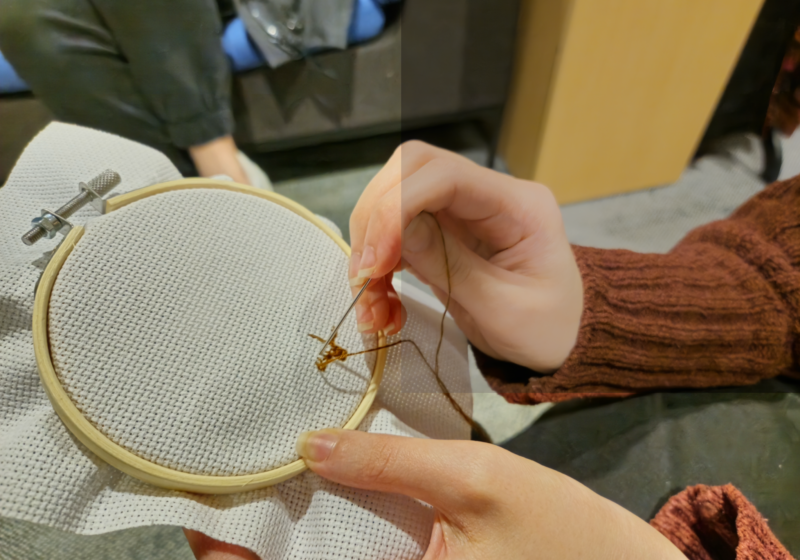The International Theatre Program’s “When you comin’ back, Red Ryder?” premiered last Thursday, opening the fall season to a full house.
The drama was directed by Nigel Maister, director of the International Theatre Program (ITP), and written by Mark Medoff.
A black telephone, a jukebox in the corner, and slightly worn out chairs and bar stools transported the audience back to a 1970s-style diner, the main setting of the night.
“We started building the set after the semester started,” Maister said. The students and faculty finished the stage just one day before the opening night.
“[It’s] a play younger college-going audience will connect with,” Nigel said.
The drama takes the audience back to when American society was plagued by the aftermath of the Vietnam War. It showed the dilemma that young Americans faced at the time: a shattered idea of glorified war heroes, an inability to conform to the restraints of societal rules, and the shackles of the middle-class attitude.
The beginning of the show was quite ordinary with characters Angel and Stephen, alias Red Ryder, having a normal early morning conversation at the small diner where they both worked.
Exchange student and senior Marta Kontny did a wonderful job playing the innocent and gullible character Angel. Her ingenious performance evoked pity from the audience on several occasions.
With the pretentious accent and a “Born dead” tattoo marked on his arm, senior Ian von Fange satisfactorily played the role of the Red Ryder.
The irony of this name lies in the fact that Red Ryder is the epitome of justice and freedom. Although Stephen dreamed of living up to his namesake, he did little to achieve that. He was stuck in the diner working the graveyard shift.
The director chose to portray the neighbor Lyle Singh as a turban-wearing Punjabi, which is a small deviation from the original script.
Sophomore Ronjoat Aulakh, who played this role, was funny at times and provided comic relief in an otherwise tense and suspenseful play.
The diverse characters in the play challenged the actors—one of the reasons that Nigel selected this play for Meliora Weekend.
“You get to be dangerous, you get to be sexy, you get to be violent, you get to be frustrated. Full range of acting opportunities for young actors,” Maister said.
The play took a chilling turn after four customers entered the scene.
Two of them are Richard and Clarisse Etheridge (played by sophomores Benjamin Read and Samantha Richardson, respectively), the embodiments of classy Americans in the ‘70s.
Read did an excellent job acting the immaculate Richard, whose sole purpose is to control his wife’s every action. Richardson’s acting showed some of the frustrations that Clarisse was going through—being a puppet in the hands of her husband and enduring an unhappy marriage.
One of the other customers was the antagonist, Teddy, played by junior Theodore Rycroft. He evoked fear in the audience with his sudden mood changes and violent demands. The villainous laughter and taunting temper sent a chill through my spine.
Cheryl was played by junior Andria Rabenold, and was Teddy’s sidekick throughout the play. She was largely overshadowed by the antagonist’s captivating presence.
Clark, the no-nonsense boss of Angel and Stephen, is a male character in the original script, but here was portrayed as a woman by junior Jacqueline Tran.
The program was vital in figuring out the references and clarified that the name in the title, Red Ryder, was one of the legendary heroes in the comic strips of the 1950s—something perhaps unfamiliar to the mainstream college audience.
Overall, though, the play was truly entertaining and effective at conveying the socio-economic condition of the ‘70s, and what, exactly, that meant for ordinary Americans.



